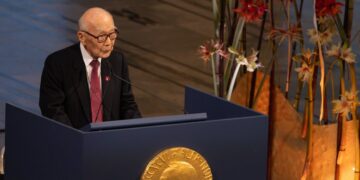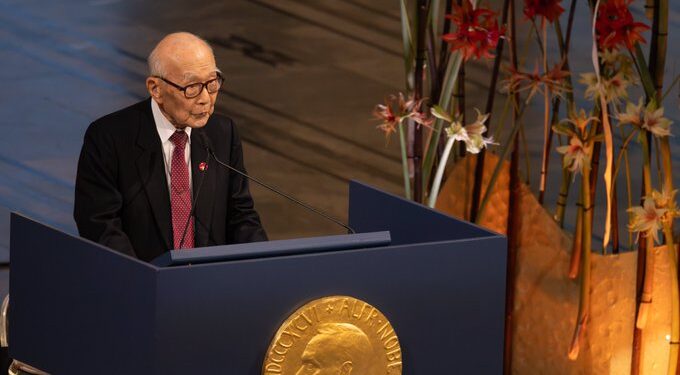Oslo, Norway – The Norwegian Nobel Committee has awarded the Nobel Peace Prize for 2024 to the Japanese organisation Nihon Hidankyo.
This year’s Nobel Peace Prize diploma was handed out Tuesday, December 10, 2024, to the representatives of the 2024 Peace Prize-awarded organisation Nihon Hidankyo in Oslo, Norway.
Terumi Tanaka, the representative of 2024 peace laureate Nihon Hidankyo, Tanaka recounted the events he witnessed on 9 August 1945 as a 13-year-old boy living 3 kilometres from the hypocenter of the atomic bombing at Nagasaki.
In a deeply moving Nobel Peace Prize lecture, Tanaka, co-chairperson of Nihon Hidankyo, reiterated the organisation’s decades-long commitment to a world free from nuclear weapons.
Nihon Hidankyo, the Japan Confederation of A- and H-Bomb Sufferers Organizations, was honoured in 2024 for its tireless efforts to highlight the catastrophic humanitarian consequences of nuclear warfare and its advocacy for disarmament.
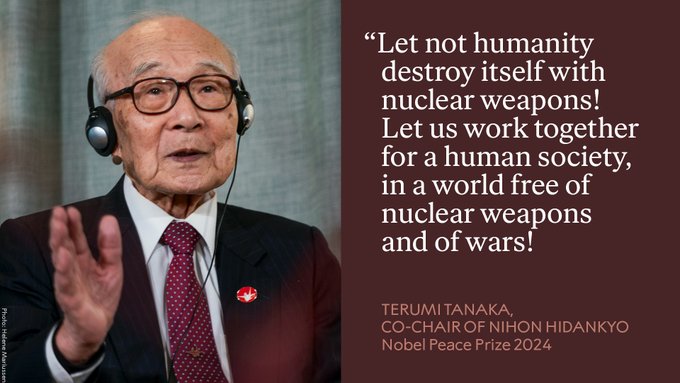
Speaking at Oslo City Hall, Tanaka recounted his harrowing experience as a survivor of the Nagasaki bombing at the age of 13. “I was engulfed in a bright, white light,” he recalled, his voice trembling with emotion. “The devastation I witnessed—corpses scattered, blackened ruins—can hardly be described as human deaths.”
The horrors of Hiroshima and Nagasaki
Tanaka’s address painted a vivid picture of the suffering endured by Hibakusha, the survivors of the atomic bombings of Hiroshima and Nagasaki in 1945, and the ongoing struggles they face. “The Hibakusha were forced into silence, abandoned by the Japanese government, and left to suffer from illness, hardship, and discrimination,” he said.
The organisation, founded in 1956, has played a pivotal role in fostering what Tanaka referred to as a “nuclear taboo,” shaping global discourse on the inhumanity of nuclear weapons. However, he warned of the fragile nature of this taboo, citing recent threats and actions by nuclear-armed states.
“The nuclear superpower, Russia, threatens to use nuclear weapons in its war against Ukraine. A cabinet member of Israel, in the midst of attacks on Gaza, has spoken of the possible use of nuclear arms,” Tanaka said, expressing anger and sadness.
With over 12,000 nuclear warheads still in existence, Tanaka called on the global community to unite in action. “Please try to imagine—there are 4,000 nuclear warheads ready to launch. Any one of us could become a victim or a perpetrator at any time,” he pleaded.
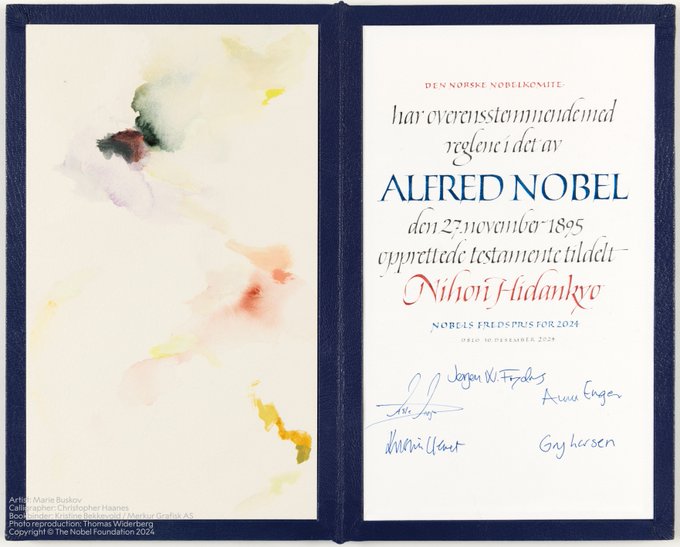
Tanaka highlighted Nihon Hidankyo’s contributions to international disarmament efforts, including the landmark Treaty on the Prohibition of Nuclear Weapons adopted in 2017. The treaty, supported by 122 nations, represents a significant step toward the elimination of nuclear arms.
The 91-year-old survivor also emphasised the urgency of preserving Hibakusha testimonies as their numbers dwindle. “The average age of the A-bomb survivors is now 85. Ten years from now, only a handful of us may remain,” he noted. He urged future generations to carry forward the movement to abolish nuclear weapons.
Tanaka concluded his speech with a powerful appeal: “Let not humanity destroy itself with nuclear weapons. Let us work together for a human society, in a world free of nuclear weapons and wars.”
‘NO’ to nuclear weapons
The Nobel Peace Prize for Nihon Hidankyo serves as a stark reminder of the devastating consequences of nuclear warfare and a rallying cry for collective global action to ensure such suffering is never repeated.
In response to the atomic bomb attacks of August 1945, a global movement arose whose members have worked tirelessly to raise awareness about the catastrophic humanitarian consequences of using nuclear weapons. Gradually, a powerful international norm developed, stigmatising the use of nuclear weapons as morally unacceptable. This norm has become known as “the nuclear taboo”.
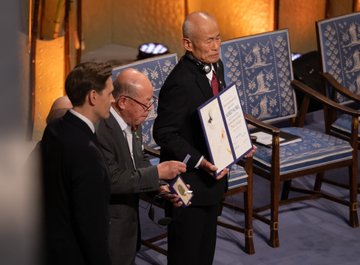
The Norwegian Nobel Committee acknowledged one encouraging fact: No nuclear weapon has been used in war in nearly 80 years, adding that the extraordinary efforts of Nihon Hidankyo and other representatives of the Hibakusha have contributed greatly to the establishment of the nuclear taboo.
“It is therefore alarming that today this taboo against the use of nuclear weapons is under pressure. The nuclear powers are modernising and upgrading their arsenals; new countries appear to be preparing to acquire nuclear weapons; and threats are being made to use nuclear weapons in ongoing warfare. At this moment in human history, it is worth reminding ourselves what nuclear weapons are: the most destructive weapons the world has ever seen,” the committee said in a press release on October 11, 2024.
Next year will mark 80 years since two American atomic bombs killed an estimated 120,000 inhabitants of Hiroshima and Nagasaki. A comparable number died of burn and radiation injuries in the months and years that followed. Today’s nuclear weapons have far greater destructive power. They can kill millions and would impact the climate catastrophically. A nuclear war could destroy our civilisation.
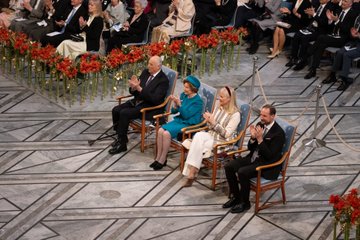
“In awarding this year’s Nobel Peace Prize to Nihon Hidankyo, the Norwegian Nobel Committee wishes to honour all survivors who, despite physical suffering and painful memories, have chosen to use their costly experience to cultivate hope and engagement for peace.”
The Nobel Peace Prize for 2024 fulfils Alfred Nobel’s desire to recognise efforts of the greatest benefit to humankind.
